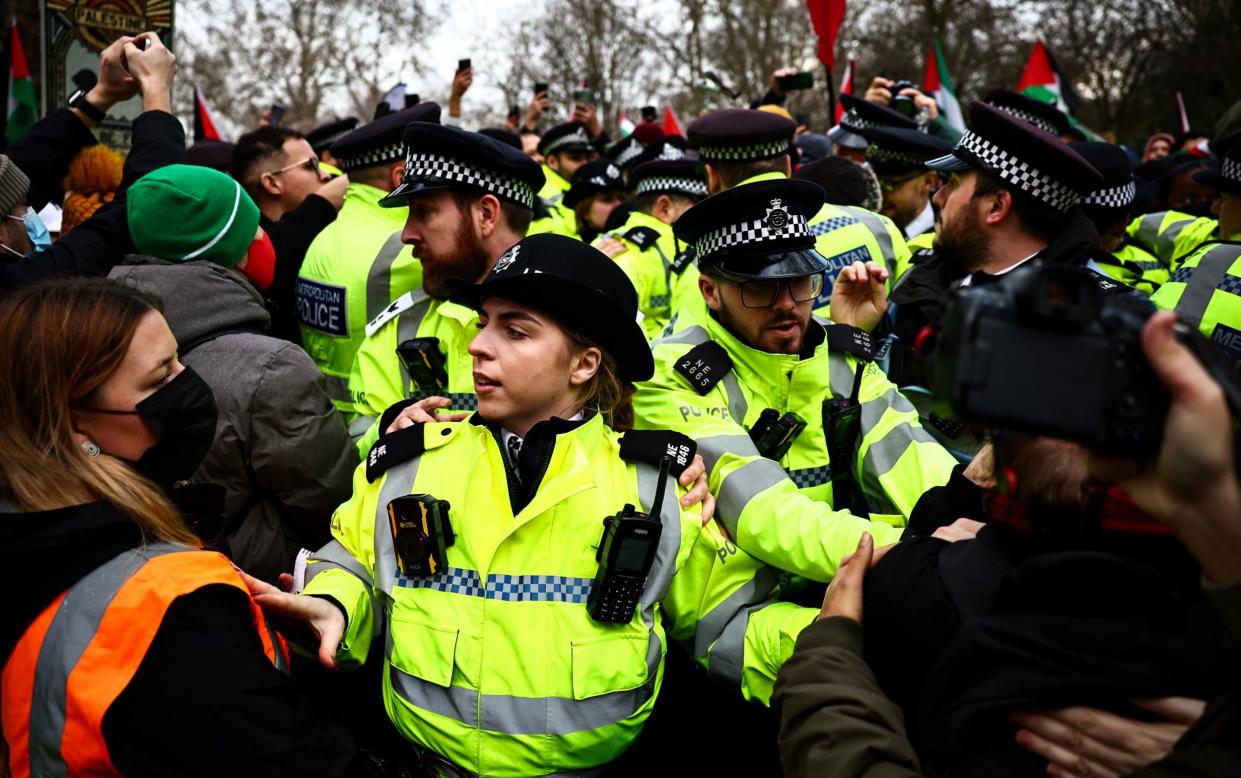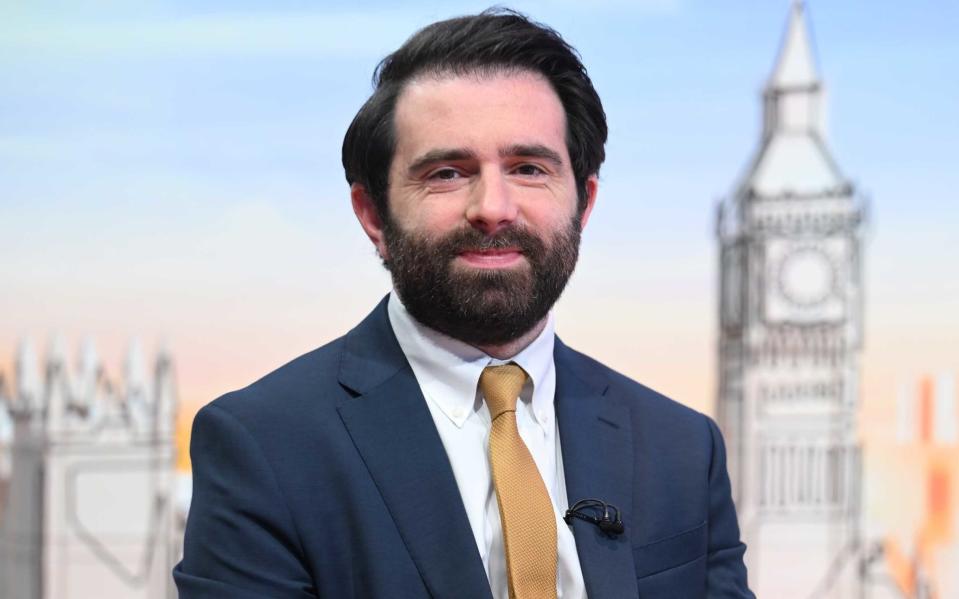Pro-Palestinian protests ‘making London no-go zone for Jews’

Pro-Palestinian protests are turning London into “a no-go zone for Jews”, the counter-extremism tsar said as he warned that extremist groups have “gone unchallenged for too long”.
Writing for The Telegraph, Robin Simcox, the Home Office’s independent adviser on extremism, said the Government and its agencies had powers to combat extremism but had failed to tackle groups that “lurked” just below the threshold of being terrorists.
He issued the warning after Rishi Sunak urged protesters last week not to “let the extremists hijack your marches”, and with Michael Gove preparing to announce a broader definition of extremism.
Mr Simcox said the “permissive environment for radicalisation” developing in the UK meant that activities such as pro-Palestinian protests, which he said leave parts of the capital off-limits to Jews, had become “normalised”.
He warned that the same applied to Iran’s sponsorship of British schools and mosques, the Muslim Brotherhood and Hamas’s support for British charities and extremist TV channels operating on UK soil.
“We have not betrayed democracy if extremists are no longer able to operate television channels,” he said. “And we will not have become an authoritarian state if London is no longer permitted to be turned into a no-go zone for Jews every weekend.
“All these things and more have become normalised in the UK. It is why I have warned of a permissive environment for radicalisation developing that needs urgently addressing. These groups have gone unchallenged for too long, and have used their time well. They are now embedded and influential among communities.”
Robin Simcox
Extremist acts have been normalised in Britain
He made the comments in the lead-up to Mr Gove’s announcement next week of a new definition of extremism to enable the Government, universities, councils and other bodies to ban funding for, and engagement with, Islamist and far-Right groups if they are judged to be promoting extremist ideology that “undermines” British values.
It is understood that Mr Simcox believes police should consider placing tougher restrictions on demonstrations, and that such a move would not signify “authoritarian” desire to crush the protests but a recognition that the heart of London could not indefinitely host large and intimidating protests.
One option he is understood to have canvassed would be whether the protests could be held in a different part of the city or could be restricted to being static, as has been required of demonstrations by the far-Right English Defence League.
Mr Sunak has urged police to take a tougher stance on protesters, telling officers that “we will back you when you take action”.
Sir Mark Rowley, the Met Police Commissioner, subsequently defended his force’s handling of protests, saying that “we have to police the law as it is, not as others would wish it to be”.
However, Mr Simcox said extremist groups could be shut down or curbed by ministers and regulatory agencies such as the Charities Commission, Ofcom or the Department for Education, but had not been.
“Government has more power to tackle extremism than it sometimes thinks,” he said. “The Iranian government does not have an inalienable right to run schools and mosques in our capital city. It is not an unalterable democratic principle that Hamas and the Muslim Brotherhood must be allowed to run a multitude of charities.”

Mr Simcox said the Government needed to be bolder and move faster in tackling extremist groups, even if they were highly litigious in challenging any attempt to crack down on them.
“That means the Government… be willing to accept higher legal risk if it means implementing policies that keep us safer,” he added. “This is particularly pertinent when it comes to disrupting the activities of those groups who propagate extremist narratives but who lurk just below the terrorism threshold.”
It is understood he believes that universities could take a tougher approach by banning extremist speakers or shutting down events, and that the Government could do more to refuse visas to hate preachers on speaking tours of the UK.
“It cannot only be Government who stands up to these extremists – be it Islamist, extreme Right-wing, extreme Left-wing or other ideological manifestations – but it has the most resources and must take a leading role,” he said.
The Government is not expected to publish a list of the extremist groups that could be caught by the new definition, which encompasses any group or individual that promotes an ideology that “undermines the rights or freedoms of others”.
However, it is understood that ministers are likely to use parliamentary privilege to name the groups in the Commons.
It is non-statutory, not a new criminal definition, so would only affect who government bodies, officials and ministers could engage with and fund.
It would define extremism as the promotion or advancement of an ideology based on intolerance, hatred or violence that aims to undermine the rights or freedoms of others, and would include those who seek to undermine or overturn the UK’s liberal system of democracy and democratic rights.
Any groups or individuals intentionally creating a permissive environment for either of these would also be banned from working with government bodies.
In his speech outside Number 10 last Friday, Mr Sunak said the Government would introduce a “new robust framework” this month to tackle extremism in the UK and “redouble support” for the Prevent programme, which is designed to tackle radicalisation.
He said Britain must face down extremists, accusing them of deliberately trying to undermine the UK’s “multi-faith democracy”.
Suella Braverman, the former home secretary, invoked similar language to Mr Simcox last week as she urged Mr Sunak to introduce emergency laws to tackle extremism.
“Parts of London have become no-go areas for Jewish people,” she said. “That is totally unacceptable. We’ve seen anti-Semitism skyrocket.”
It comes after official figures showed that anti-Semitism hit an all-time high last year in what was described as an “explosion of hatred”.

